A Parents' Guide to COVID-19: Keeping Kids Safe

Contrary to myth, children are impacted by COVID-19. While it’s true that children are at less risk of becoming severely ill from the SARS-CoV2 virus, more than 13.8 million children have contracted COVID-19 to date, accounting for over 18% of COVID cases since the pandemic’s onset (Source: American Academy of Pediatrics).
With the continuing number of cases and potential for more variants, protecting children is more important than ever.
Here's what you need to know to maximize your child’s safety:
Know the Risks
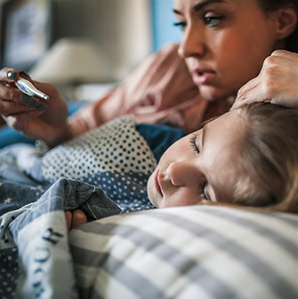
Although complications from COVID-19 appear to increase with age, kids are still susceptible to COVID-19 infections. We also know that severe symptoms requiring hospitalization can also occur. Kids with underlying health conditions are especially vulnerable, accounting for 2/3 of hospitalized cases – though no child is fully immune to COVID complications. Risk factors for kids developing COVID-related complications requiring hospitalization include:
Obesity
Kids with obesity are 30% more likely to be hospitalized due to COVID-19.
Other chronic illnesses
Kids with heart, lung or kidney disease, asthma, type 2 diabetes, and other chronic illnesses are at higher risk of developing severe COVID-19 symptoms.
Compromised Immunity
Kids with weakened immune systems due to cancer, organ transplants, rheumatological and gastrointestinal disease, and certain medications like long-term steroids also have increased susceptibility to severe COVID-19 symptoms.
Even for children without heightened risk, missed school, paused social time, and feeling "icky" can prove to be just the beginning of COVID-19 complications. Some kids are also experiencing long COVID, where symptoms like headache, fatigue, and loss of taste or smell persist long past initial infection. Approximately 8% of children with COVID-19 reported continued symptoms more than 12 weeks after diagnosis, according to a recent study.
Kids are also at risk of developing Multisystem inflammatory syndrome in children (MIS-C) following a COVID-19 infection. MIS-C is a rare but serious condition where several organs like the heart, lungs, kidneys, brain, skin, eyes, or gastrointestinal organs develop inflammation.
Over 8,000 cases of MIS-C have been reported in the United States and 70 deaths (Source: CDC as of June 27, 2022). Moreover, RSV occurring alongside or succeeding COVID-19 continues to be a concern. Learn more about MIS-C and RSV in depth by clicking on our blog links below.
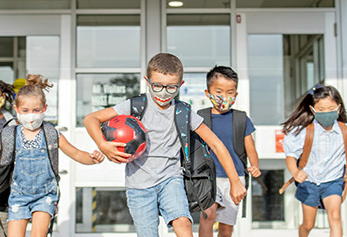
|
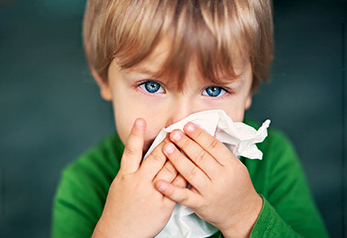
|
What Parents Should Know About Multisystem Inflammatory Syndrome in Children (MIS-C) | Respiratory Syncytial Virus (RSV): The Newest Threat to Children? |
COVID-19 Vaccines are Safe and Effective for Children
Both the Pfizer-BioNTech (COMIRNATY) and Moderna (SpikeVax) vaccines are now authorized for children 6 months and older. The table below shows the dosage provided for each age group.
| COMIRNATY | |
| Ages 6 months to 4 years | 3 3-microgram doses |
| Ages 5 to 11 | 2 10-microgram doses |
| Children 12 and up | 2 30-microgram doses |
| SpikeVax | |
| Ages 6 months to 5 years | 2 25-microgram doses |
| Ages 6 to 12 | 2 50-microgram doses |
| Children 12 and up | 2 100-microgram doses |
Kids 5 and older are now eligible for COVID-19 boosters. Because the vaccine’s effectiveness can wane over time, boosters are an important way to keep your child’s immunity responding to COVID-19 and its variants. Learn more about booster shots and eligibility.
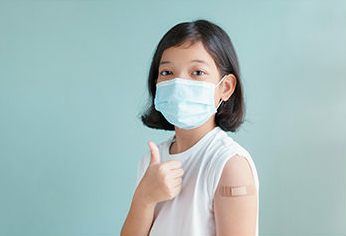
|
Masking & Social Distancing as Preventive Tools
Masking is still recommended if COVID-19 cases spike enough to cause a high risk in our region. A risk assessment by county is available through the CDC's COVID-19 County Check tool. When your community's risk is high or your child is moderately or severely immunocompromised, masking is appropriate for children 2 and older, along with physical distancing of six feet or more around people outside your immediate household. Learn the facts about kids and masking below.
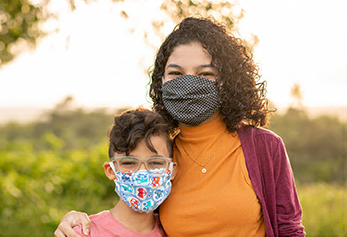
|
Teach and Practice Good Hygiene
You know the drill by now: wash your hands frequently for at least 20 seconds with soap. Hint: try singing the chorus of your child’s favorite song as you wash your hands together.
But sometimes, especially with younger children, it takes a little more to drive the message home. Here are a few ideas for teaching your child proper handwashing techniques.

|
Prepare Routines and Activities
School closures and limiting your child’s social time with others may call for long days at home. It’s important to maintain a structure and keep to routines when you can. Here are a few ideas for keeping kids occupied:
Virtual Museum Tours
Museums and art galleries around the world have partnered with Google Arts and Culture to offer virtual tours. Take a virtual field trip.
Find more at-home, interactive, and engaging activities below.

|
Don’t Forget About the Flu
Even though COVID-19 may be at top of mind at the moment, flu viruses still spread and can lead to severe illness in children. The good news is, the same tools that protect both you and your family from COVID-19 (including vaccines, masking, social distancing, and frequent handwashing) also protect against the flu – and it’s safe to get a flu and COVID-19 shot at the same time.
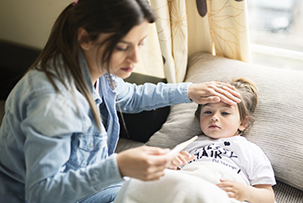
|
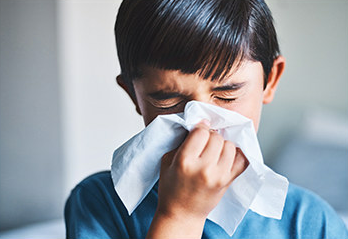
|
Ready Wrigley Prepares for Flu Season (Coloring Book)
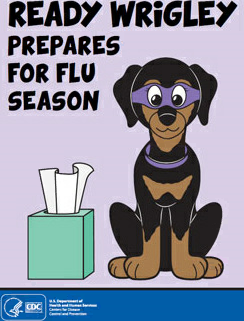
The CDC’s flu preparedness campaign includes a fun coloring book featuring Wrigley the dog. It’s not specifically about COVID-19, but still a great activity for young children. Download a printable copy.
Wash Your Hands Song by the Singing Walrus
The Wash Your Hands Song by the Singing Walrus is fun way to remind younger kids how important hand hygiene is, especially to protect from viruses.
Show Your Kids the “Cough Pocket”
Coughing or sneezing into your elbow can be hard for kids to remember. But calling the elbow a “cough pocket” might help the behavior stick.
ABC Scrub with Me
A game to help children visualize germs while practicing their alphabet skills, created by PBS Kids.
Questions? Ask a Nurse!

Do you still have questions about the COVID-19 vaccine for your child – or anyone in your family? Or maybe you need a pediatrician? A Munson Healthcare nurse is standing by and ready to help. Call Ask-A-Nurse any time to speak with a registered nurse. This service is FREE and no insurance is required.